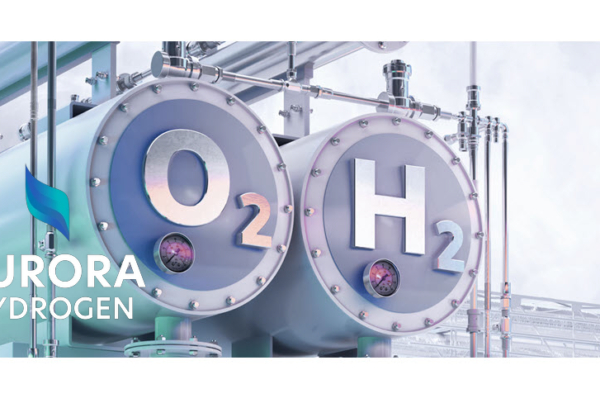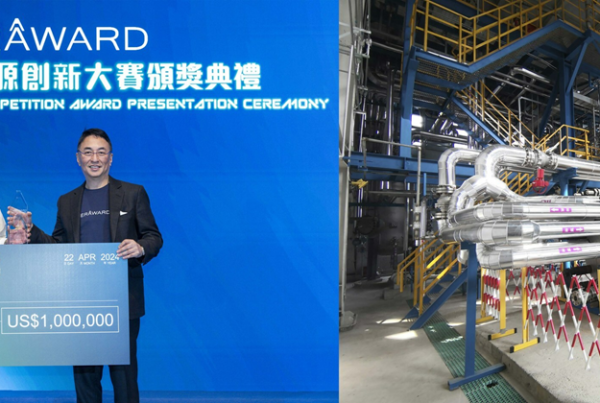
Researchers Yiftach Yaakobi from the School of Plant Sciences at Tel Aviv University and Lihi Adler-Abramovich from the Center for Nanoscience, have discovered an easy-to-manufacture, multifunctional biological nanomaterial to protect the enzyme that enables the production of hydrogen “Clean”, neutralized by exposure to oxygen in the air.
The method will significantly increase the distribution of vehicles running on hydrogen and will be usable for many other applications, such as the protection of vehicle cooling circuits, the transport of oxygen, or food packaging of fresh products.

The study also attended by Dr. Oren Ben-Zvi and PhD student Itzhak Grinberg from Tel Aviv University as well as other researchers from Texas A&M University and the Galileo Research Institute MIGAL, has been published in the prestigious journal ACS Nano.
“Gaseous hydrogen is produced from renewable energy sources like the sun, and is considered the cleanest fuel there is,” explains Prof. Yaakobi. “Its consumption produces only clean water vapor, without any polluting emissions. Hydrogen-fueled electric cars and bikes are already driving on American and European roads today, with a range of up to 500 km per tank. This year, Israel is also expected to join the community of these users, with the establishment of the first hydrogen fuel service stations in the country. However, hydrogen itself is produced today by processes that consume a lot of energy and emit a large number of pollutants ”.
Protect the enzyme from direct contact with oxygen
“On the other hand, there are biological processes that allow clean and efficient hydrogen production, based on a process of electrolysis of water using an enzyme called ‘hydrogenase’. But the use of hydrogenase for this purpose is for the moment very limited because it is immediately neutralized in the presence of the oxygen present in the air. In our study, we looked for a simple way to create a protected environment without oxygen, where the enzyme hydrogenase could function efficiently and allow the production of hydrogen by a clean process ”.
The researchers chose to focus on a familiar, simple, and multifunctional biological substance: dipeptides, molecules made up of two amino acids (fluorenylmethyloxycarbonyl-diphenylalanine), known as building blocks of the nanofibers that make up the hydrogel, water-based gel.
In the laboratory of Prof. Lihi Adler-Abramovich, a specialist in the development of nanomaterials, the enzyme hydrogenase was introduced into a solution containing the building blocks of the hydrogel. The building bricks organized themselves spontaneously by a rapid process of self-assembly, forming a new hydrogel in which the enzyme hydrogenase is combined. The properties of this new hydrogel have been tested in the laboratory and by computer simulation.
A simple and easy to manufacture biological material
“When a hydrogenase solution is exposed to air, the oxygen neutralizes it within seconds,” explains Prof. Adler-Abramovich. “The process we did in the lab actually wrapped the hydrogenase in a hydrogel that trapped the oxygen molecules. The hydrogel thus protects the hydrogenase from contact with oxygen, and the enzyme is not neutralized immediately but survives in water for hours. It is the first time that a biological material so simple and easy to manufacture, capable of protecting materials sensitive to oxidative processes, has been discovered ”.
“The possibility of protecting the hydrogenase enzyme from the oxygen contained in the air or in the water opens the way for the generalization of its use for the production of hydrogen fuel, which could considerably increase the distribution of vehicles powered by the hydrogen, in itself the cleanest fuel in the world ”, concludes Prof. Yaakobi. “In addition, the mechanism and tools discovered during the study can be used for many applications involving the preservation of oxygen-sensitive materials, such as protecting car cooling systems against rust, transporting oxygen or food packaging of fresh products ”.
The study was conducted with the support of the Israel National Academy of Sciences and the Israeli Ministry of Energy.
Source: TU
Read the most up to date Fuel Cell and Hydrogen Industry news at FuelCellsWorks




